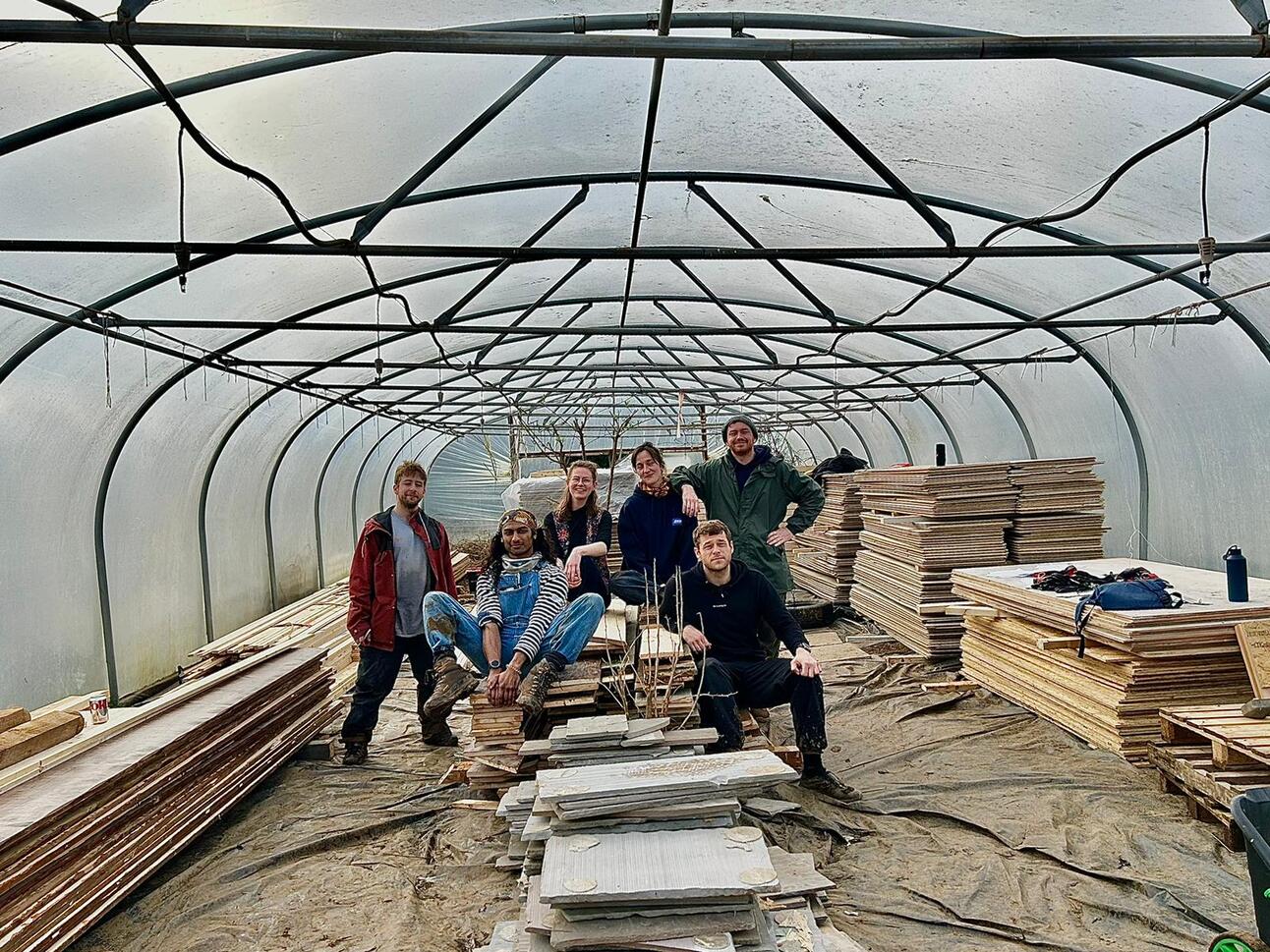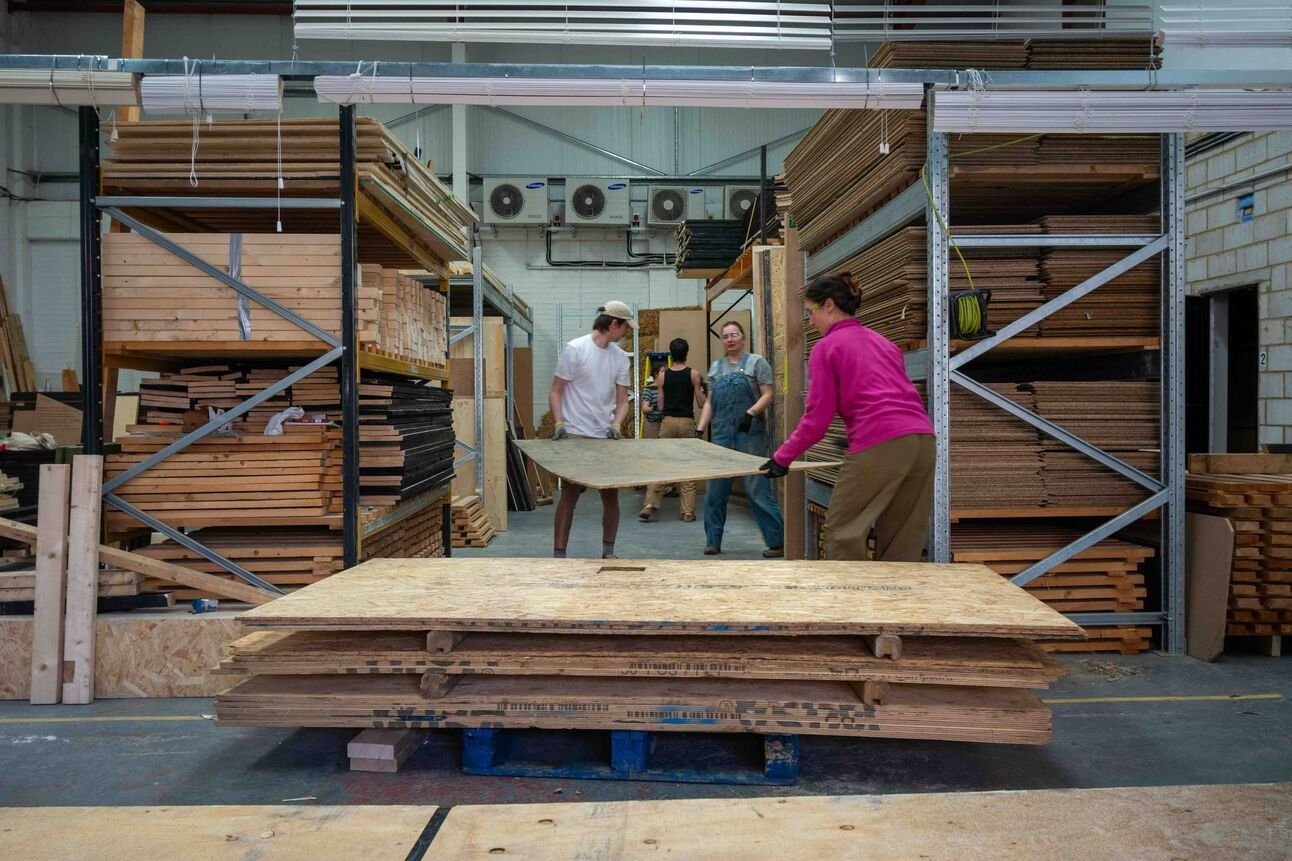- The Moral Universe
- Posts
- Change is messy and chaotic; but that’s exactly what makes it seductive and exciting
Change is messy and chaotic; but that’s exactly what makes it seductive and exciting
Embrace the change and make a difference
The planet is hurtling past 1.5 degrees of warming and the world is run by untouchable conglomerates and spoiled little boys in suits. How can individuals do anything to try and seize back some level of power, strength and dignity against a morally-corrupt and spiralling system? As an activist and a notoriously impatient, practical person, my solutions for trying to tackle society’s bigger systemic problems have always been directly hands-on.
This was why I co-founded ReCollective in 2023. ReCollective divert construction materials from waste streams (mostly now from the film industry), auditing, documenting and storing the material before designing and embedding it into new community buildings. The new system that we have created both reduces material waste and provides affordable and sustainable timber with which to build new community infrastructure. Those new spaces empower communities, who can then go on to push the world in a progressive direction.
This action-centric approach also forms a core part of our ReCollective manifesto which is to “use action to critique the running of the current system”. When people tell us that “that’s just how it is, it can’t be changed”, we prove them wrong by simply doing it better ourselves. This is done through a tonne of volunteer labour, lots of heavy lifting and moving, difficult conversations with the existing industry, imaginative design solutions to work with reclaimed materials and high levels of burnout. At the end of this process, the beautifully built and well used community infrastructure is proof that what is being thrown away has value and is not just “scrap”.
The film industry itself has never held any particular importance to me, only that in a ‘Society of the Spectacle’-esque way it represents the very worst of our material culture. Recent news articles reveal that Snow White and the Little Mermaid combined produced more carbon than some major cities annually.
The scale of waste within it is repulsive; tonnes and tonnes of practically virgin timber is used, often cut down from Malaysian forests, destroying vital habitats and shipped halfway across the world with enormous transport emissions. It’s then used for a number of weeks to build a film set, reduced to just seconds on the TV screen before being ripped down and incinerated. (70% is generally incinerated, 20% recycled, often pre-emptively).
The industry’s temporary and fast-paced nature means that it has so far escaped thorough environmental inspection and critique. It also has an iron grasp on the ‘Intellectual Property’ of the sets themselves, conveniently meaning the process all happens behind closed doors and NDAs. All the while, construction companies are incentivised to ‘build new’, by making hefty mark-ups on new material and labour.
ReCollective’s process makes change to the status quo visible (moving and processing material). We challenge the standard acceptance of deep-seated behaviours that cause these problems of excessive consumerism and a toxic relationship with material waste to perpetuate in the first place. In this way our work is not only logistical but inherently political, an active critique of capitalism and profit-driven systems.
And what we do does inspire change, I’ve seen it myself.
Day-to-day, the ReCollective community inspire each other, with so much bleak climate news, it is greatly rewarding to do a day's manual labour processing materials and look at tangibly what you’ve achieved. Unlike policy which is a slow and grinding change (although undoubtedly important), our version of change is immediate and obvious. Even initially grumpy carpenters are making us cups of tea and helping out by the end of a week on set.
Change is not always linear and predictable. Early last year we spent weeks of voluntary time organising to take 7.5 tonnes of timber from a film set that was destined for the bin. We travelled to site, audited, sorted, de-nailed and packaged the material before loading it onto a curtainsider truck to be shipped off to communities in Cornwall. A few hours after the truck left, I got a phone call saying that the Producer (presumably from their swanky apartment in LA) had received our material audit showing stacks of our now beautifully sorted and processed timber. They had changed their minds; they now wanted the material back.
Weeks of our hard work were now on their way back to a storage unit in London, to likely be held for another 12 months (with storage costs for them to the tune of around £10,000) before likely being disposed of anyway.
This job nearly took ReCollective out completely and I spent 3 days staring into the abyss before reflecting on seeing this as a twisted success… we had beautifully orchestrated our own downfall by proving the point we set out initially: ‘Your existing process and set-up is insane, let us highlight the value of this material to prove this to you.’ With the work we had done, even a profit-driven corporate death machine on the other side of the world had to admit logically we were right, although spectacularly fucking us over in the process.
The system that ReCollective have created is admittedly new and littered with imperfections that could be picked apart. We are trying our best, but change is messy and chaotic. That chaos is also exactly what also makes it seductive and exciting to come up with alternatives. Instead of seeing the waste as a problem; we see it as an opportunity to shout into the face of the system itself. Whether in protest as an activist or in ‘subversive material logistics’ as ReCollective, I’ve found trying to make change happen often feels difficult as it’s like throwing yourself into the gears of a large machine. You have to remember that the more resistance you face on the way down, the more your disruption is likely to have interrupted the system itself, paving the way for a new and better way of doing things.
Join us.
Instagram: @_recollective_
Email: [email protected]


Freya is a Co-Founder of ReCollective, she has a background of political activism, systems thinking, sustainable architecture and illustration. Her work is quite difficult to put in a box as it is often driven by emotion, impulse and intuition which are unpredictable but heartfelt drivers.
Reply